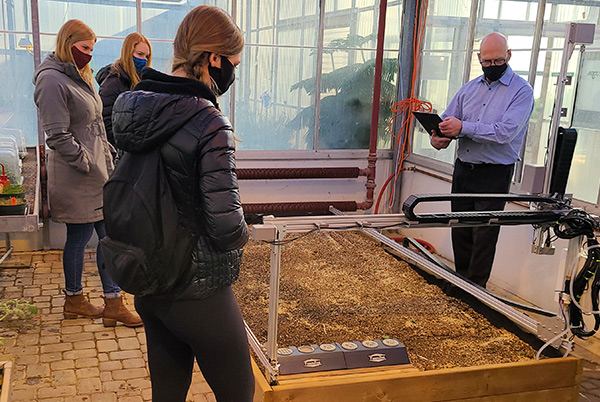Celebrating #CdnAgDay
Celebrating #CdnAgDay
At Olds College everything we do supports the innovative evolution of the agricultural industry. From offering full-time programming in agriculture, agriculture technology, horticulture, animal science, land and environment management, food production and trades, Olds College offers high-tech, hands-on education.
Through our innovative applied research program that includes the Olds College Smart Farm and the Field Crop Development Centre, we are laying the foundation for solving real-world problems in farming, food and land.
“Olds College is committed to our Social Purpose: transforming agriculture for a better world,” comments Stuart Cullum, President, Olds College. “To do this we have created an environment at the College, where industry partners and agriculture producers are working with our faculty, students and researchers to address today’s challenges. Together, this community is coming up with innovative solutions to advance all aspects of agriculture so that we can increase productivity in a sustainable way.”
In the spirit of Canada’s Agriculture Day (#CdnAgDay), we have pulled some interesting stories from around campus.
At Olds College we love agriculture - it’s who we are.
Students help calve out Olds College HerdEvery year during the winter term, students in their second-year of the Agriculture Management Diploma get to take turns helping with calving. Students are put into teams and added to a rotational schedule. Under the guidance of their instructors and the Olds College Farm team students partake in prenatal to postnatal care and management of the Olds College herd. So far this year, students have played an active part in the birth of over 140 calves on the Olds College Smart Farm. |





